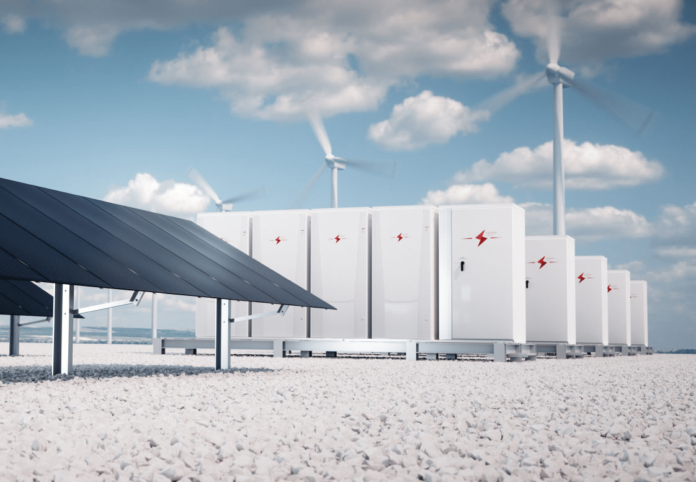Short : Companies are rushing to establish renewable energy storage capacities as demand for sustainable power soars. This strategic move is key to stabilizing renewable energy supply, enabling more reliable, efficient energy management, and driving the transition toward a cleaner, greener energy future.
Detail : ReNew intends to deploy between 3,000 and 5,000 MW-hr of storage capacity by 2030, with an investment of over Rs 5,000 crores.As the government looks to set up 500 gigawatt (GW) of green capacity by 2030, a key challenge is to ensure its seamless access to the Grid. This is because RE by nature is intermittent, which undermines its optimal use unless stored efficiently.
Private companies such as ReNew, JSW Energy, Avaada Energy, Serentica Renewables, Gensol and public power companies like NTPC have already forayed into energy storage projects. They have lined up significant investments and set capacity targets in the space.“Avaada is actively working on developing two large-scale pumped storage projects. The first project is a 1,560 megawatt (MW) facility in Uttar Pradesh, which is currently in the advanced stages of approval. The second project is planned for Maharashtra with a capacity of 1,500 MW. Both projects, totaling 3,060 MW, are expected to be operational before 2030,” said Chairman Vineet Mittal. The company plans to invest around Rs 16,500 crore in these projects. In addition to these two projects, Avaada has a pipeline of other pumped storage projects that are in various stages of approval for allocation.
ReNew intends to deploy between 3,000 and 5,000 MW-hr of storage capacity by 2030, with an investment of over Rs 5,000 crores. As per sources, the company already has a firm pipeline of 2,000 MW-hrs. On the PSP side, the company is developing a pipeline of about 3 GW of projects in different parts of the country, which are in different stages of development. Serentica Renewables plans to deploy 2,500 MWh by 2027 and at least 5,000 MWh by 2030.
The grid battery storage market is projected to grow from about 15 GWh this year to 60 GWh annually by 2030, as per industry sources. The Central Electricity Authority (CEA) estimates that 236 GWh of BESS shall be installed by 2030 to support integration of 500 GW of renewable energy by 2024. It also suggests that the segment would require investments worth Rs 1 lakh crore by 2030 to set up these BESS projects .Anvi Power, an affiliate company of Gensol, is planning to set up 8 GWh per annum Battery Energy Storage manufacturing in phased manner, with the first phase expected to become operational by end of 2025.
“Having secured 1.14 GWh BESS projects and backed by a strong tender pipeline, Gensol aims to invest Rs 4,000 crores in the next 3 to 4 years, targeting a 5 GWh portfolio,” said Satyanarayana Reddy Desai, Chief Commercial Officer, Anvi Power.Impact Infracap is also actively seeking to expand its business presence and is currently pursuing projects aggregating to over 1 GWh with the aim of building up a portfolio of over 5-8 GWh by 2026.
“In our view the Indian BESS market is well positioned to witness exponential expansion in the coming years and we are well placed to secure a substantial portion of new capacity to be bid out in the coming years,” said Sharat Goyal, CEO of Impact Infracap. The country is actively implementing policies to enhance its energy storage capacity, focusing on both pumped hydro and battery storage systems to support its renewable energy goals. Key policy measures include auctions of energy storage systems.
“The government has integrated energy storage into renewable energy tenders, such as Solar Energy Corporation of India’s solar and wind projects with storage, promoting the use of BESS and PSPs,” said Mittal.





